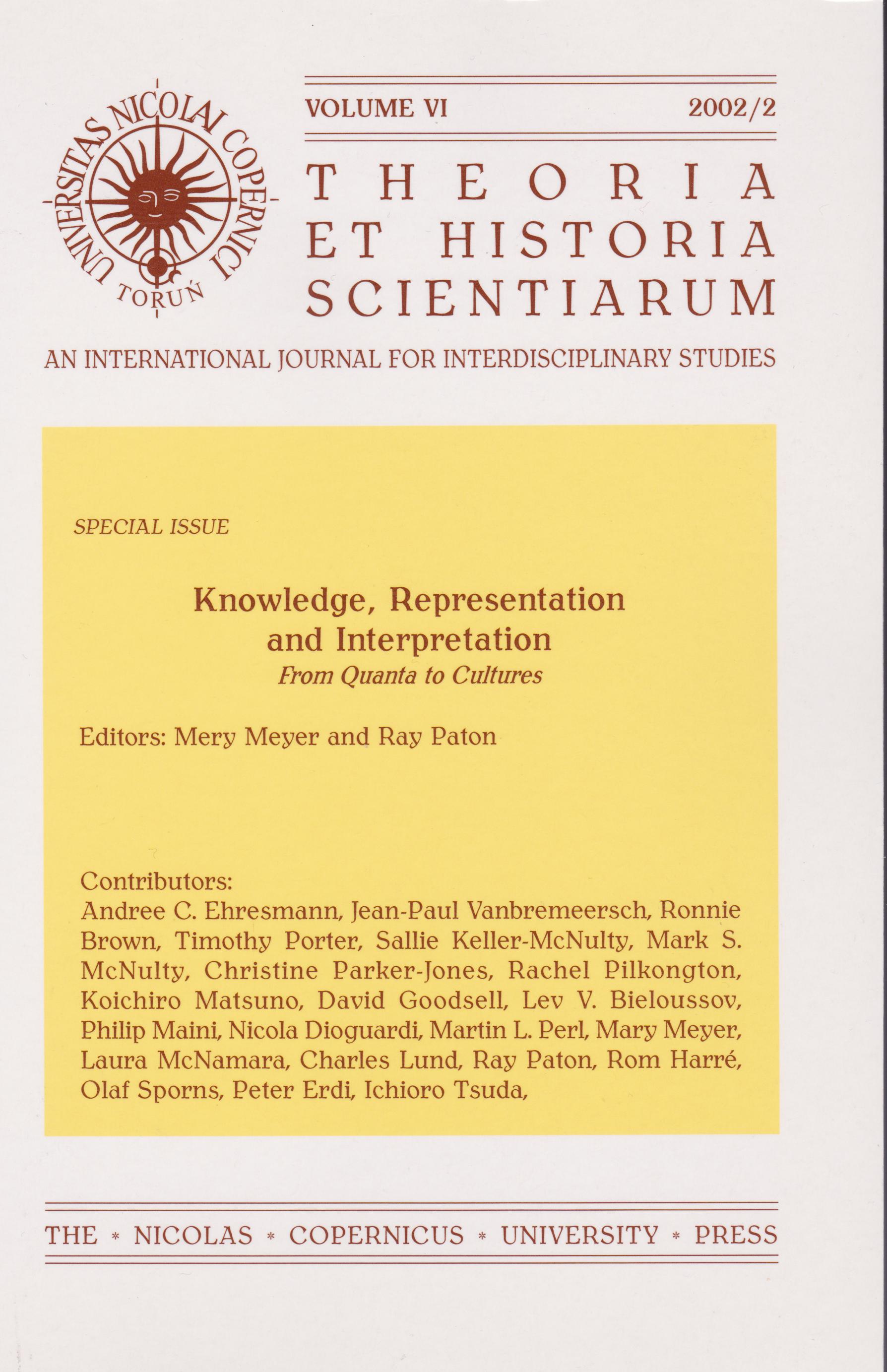The Memory Machine
DOI:
https://doi.org/10.12775/ths.2002.033Keywords
cognitive science, naturalistic analysis, discursive practices, remembering, brain mechanismsAbstract
The foundations of an adequate cognitive science that binds the cognitive activities of human beings into a coherent conceptual system with the neurological basis of these activities has been slow to develop. The problem is partly due to the complexity of the relationships that must be set up between a naturalistic analysis of the discursive practices such as remembering, and the brain mechanisms by which they are accomplished. There are plenty of intermediate models of cognitive ‘mechanisms’ but they have been developed for the most part with little attention to the ontological constraints on model building that are central to the physical sciences. The transition from human activity to neurological hypothesis can be accomplished by a second step of modeling in which standard cognitive models are revised by the use of connectionist architectures, to provide a foundation for plausible neurological hypotheses. The argument is set out in the context of the psychology of remembering.References
Atkinson, R. C. & Shiffrin, R. M. (1968) ‘Human memory: a proposed system and its control processes’ In K. W. Spence & J. T. Spence (Eds) Psychology of Learning and Motivation New York: Academic Press, Vol. 2.
Baddeley, A. (1998) Human Memory: Theory and Practice Boston & London: Allyn and Bacon.
Ellis, J. A. (1996) ‘Prospective memory or the realisation of delayed intentions’ In.M. A. Brandimonte, Prospective Memory: Theory and Applications Hillsdale, N. J.: Earlbaum, pp. 1-22.
Engelkamp, J. & Zimmer, H. D. (1994) The Human Memory Seattle: Hogrefe & Huber. Famell, B. (1995) ‘Do you see what I mean ’: Plains Indian Sign Talk and the embodiment of action Austin, Texas: University of Texas Press, pp. 193-210.
Gamham, A. (1997) ‘Representing information in mental models’ In M. A. Conway, Cognitive Models of Memory Cambridge, Mass.: MIT Press, Ch. 6.
Gathercole, S. E. (1997) ‘Models of verbal short term memory’ In Conway op. cit. Ch. 2. Harre, R. (1988) ‘Wittgenstein and Artificial Intelligence’ Philosophical Psychology I 105-115.
McClelland, J. L. (1995) ‘Constructive memory and memory distortions’ In D. L. Schacter (Ed.) Memory Distortions; how Minds, Brains and Societies Reconstruct the Past Cambridge, Mass.: Harvard University Press, pp. 69-90.
Neisser, U. (1976) Cognition and Reality San Francisco: Freeman.
Radvansky G. A. & Zacks, R. T. (1997) ‘Retrieval of situation-specific information’ In Conway, op. cit. Ch. 7.
Rolls, E. C. (1989) ‘The representation and storage of information in neural networks in the primate cerebral cortex and hippocampus’ In R. Durbin, C. Miall & G. Mitchison The Computing Neuron Reading., Mass.: Addison-Wesley.
Rolls, E. T. (1997) ‘Brain mechanisms of vision, memory and consciousness’ In M. Ito, Y. Miyashita and E. T. Rolls (eds.) Cognition, Computation and Consciousness Oxford: oxford University Press, Ch. 6.
Downloads
Published
How to Cite
Issue
Section
Stats
Number of views and downloads: 517
Number of citations: 0



